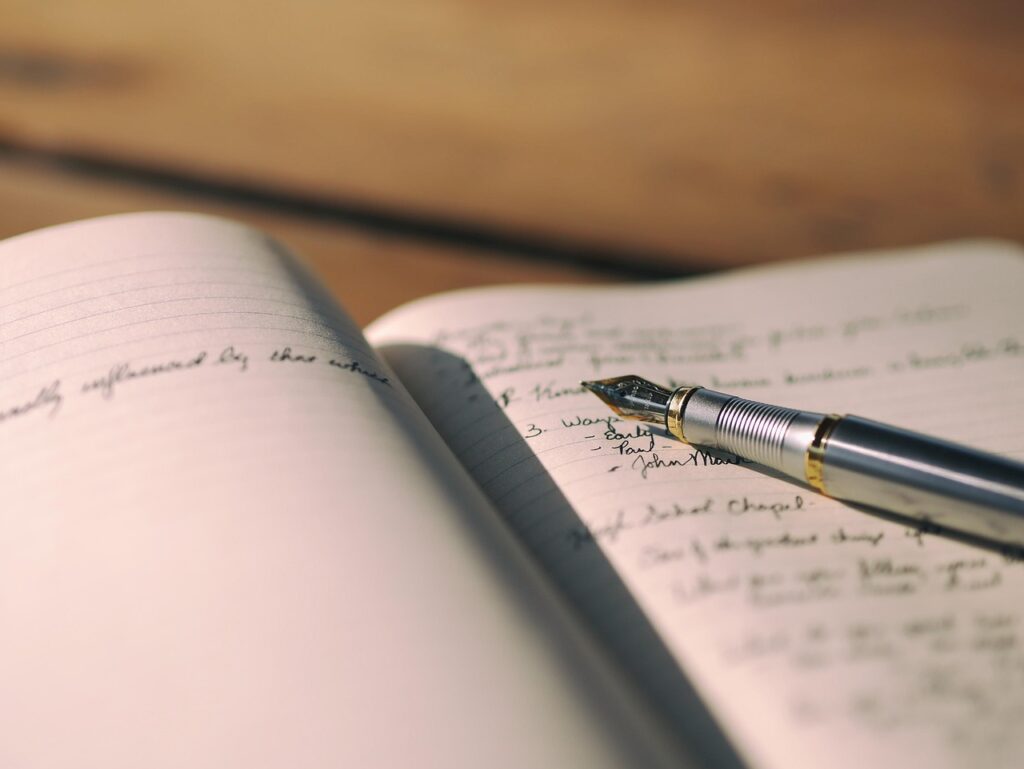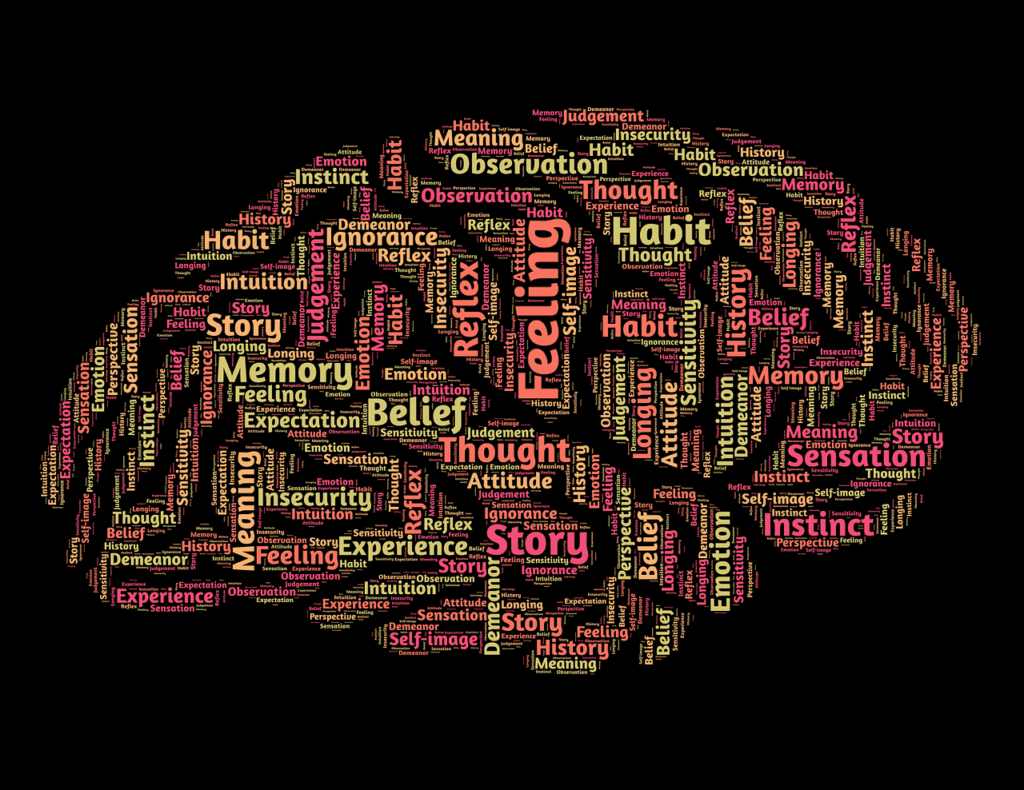Being an actor means stepping into different worlds, embodying unique characters, and delivering lines that feel like your very own thoughts. But let’s be real, facing a script packed with hundreds of lines can feel like trying to climb Mount Everest in a single leap. It’s one of the most intimidating parts of the job, whether you’re a seasoned pro or just starting out. How do those incredible stars make it look so effortless, transforming pages of text into raw, authentic performance?
Well, spoiler alert: it’s not magic, and it’s definitely not just about being “naturally talented.” While some actors might pick things up a little quicker, the truth is, the best in the business rely on tried-and-true techniques—routines so effective they unlock a kind of memorization superpower. These aren’t just about rote learning; they’re about deep connection, strategic practice, and even a bit of brain science.
We’re diving deep into the methods that make it possible for actors to recall complex lines under immense pressure, sometimes needing to learn 100 pages of dialogue in a single day! Get ready to discover the insider tricks and “secret routines” that famous actors, from Oscar winners to beloved TV stars, use to nail their lines and bring scripts to life with astounding authenticity.

1. **Deep Script Understanding & Intention**
Before a single line is committed to memory, the true pros are already doing some serious detective work. Memorization isn’t just about remembering words; it’s about connecting with the meaning behind them. You need to grasp the overall story, your character’s arc, and the motivations behind every single line. This foundational step is absolutely crucial.
Take, for instance, Daniel Day-Lewis in his portrayal of Abraham Lincoln in *Lincoln*. His deep immersion into his character helped him recall dialogue effortlessly because he understood Lincoln’s speech patterns, values, and persona. His mastery of the role went beyond memorizing lines; it was about fully embodying the person he was playing. An actor playing a character in a tense scene must understand the emotional stakes of that moment in order to say the lines convincingly.
Similarly, Dame Helen Mirren, who taught a MasterClass on acting, asserts that “knowing your character’s deep motivations can help boost your memory” when it comes to learning lines. She suggests writing the subtext of your character’s dialogue on every page of the script. This background understanding makes it easier to recall the lines in the heat of the moment, as the actor has an emotional connection to the words. When you know *why* your character speaks a line, the words become easier to remember—and more natural in performance.
Read more about: Hollywood’s Missed Cues: 12 Cinematic Missteps That Should Have Stayed in the Can

2. **Breaking Down into Smaller Chunks/Beats**
Ever tried to eat an entire pizza in one bite? Yeah, not a great idea, right? The same principle applies to memorizing a script. Trying to memorize an entire script at once can feel overwhelmingly impossible and often leads to frustration. Instead, one of the most effective ways actors memorize their lines is by breaking the script down into manageable sections.
Rather than trying to tackle the whole thing at once, actors often focus on learning small portions at a time, such as a few pages, a single scene, or even just one paragraph or sentence. This technique is similar to studying for an exam: when you break down large amounts of information into smaller pieces, it’s much easier to process and remember without getting lost in the sheer volume.
Tom Hanks, known for his versatility in roles, is a big advocate of this method. He breaks scripts into scenes, rehearsing one scene until he can perform it without thinking. This ensures that each part of the script is mastered before moving on to the next, making the memorization process less overwhelming and far more effective. Think of it like learning song lyrics—you don’t memorize the whole song at once, you learn it verse by verse.

3. **Consistent Repetition**
This might sound like a no-brainer, but the sheer power of consistent repetition cannot be overstated. The more an actor practices their lines, the more likely they are to remember them, plain and simple. This constant reinforcement strengthens the neural pathways associated with the dialogue, making it easier to recall when needed and building what some call “muscle memory” for your brain.
Robert De Niro, in his iconic role as Vito Corleone in *The Godfather Part II*, reportedly rehearsed his lines over and over, even practicing them in front of a mirror. This dedication to repetition not only helped him memorize his lines but also allowed him to refine his delivery, ensuring his performance was perfect when the cameras rolled. This method builds muscle memory, helping you recall lines without getting stuck in your head.
Sir Anthony Hopkins, who famously won an Oscar at 85, is legendary for his dedication to this method. An interview with AARP referenced the impressive number of times he’ll read a script to fully memorize it: 200, to be exact. Actors often rehearse scenes many times in a variety of settings—in their homes, with fellow cast members, or even while driving or walking. Saying the words helps you hear the rhythm, tone, and meaning, making them easier to recall.
This also includes techniques like reading your lines aloud (and often!). Read your script out loud multiple times before trying to memorize it, experimenting with different tones and emotions to make the words more memorable. There’s also the “Cover & Recite” method, a simple but powerful way to memorize text: read a line several times, cover it, then try to say it from memory. If you forget, peek at the first word and try again. Once you’ve mastered one line, move on to the next.
Read more about: Beyond the Bulk: Chris Hemsworth’s Real Health Journey and the Truth About ‘Harmless’ Supplements
4. **Writing Lines by Hand**
In our digital world, the idea of picking up a pen might seem old-school, but it’s a secret weapon for many actors. Writing out your lines activates muscle memory, helping reinforce what you’re learning in a unique way that goes beyond just reading. It slows you down, sharpens your focus, and helps the words sink in more deeply.
Many actors find that writing lines by hand makes them “stick” faster than typing them on a screen. You can copy your lines word for word in a notebook, or for an extra challenge, try rewriting the lines from memory, then checking for mistakes. This simple act creates a stronger connection between your hand and the paper, supporting long-term recall.
Robert Downey Jr., the brilliant mind behind Iron Man, detailed his process to Today, explaining how he writes down the first letter of each word of dialogue to get his lines down. During the interview, he gave the example of writing down the letters “T-N-S-I-M-G.” He then translated them into the sentence they represented: “There’s no shame in my game.” While this is a variation, the act of physically writing, whether full words or just initials, significantly aids memory.
Read more about: Seven: The Number That’s Everywhere – From Ancient Mysteries to Viral TikToks!

5. **Integrating Movement & Physicality**
Sitting still while you memorize? Not for these pros! One of the most helpful tips for memorization is to avoid staying stagnant. Get on your feet, walk, pace, gesture, shift your weight, and use simple physical actions. Connecting physical movements to your lines creates powerful muscle memory, which makes it easier to remember lines under pressure.
As you run lines out loud, let your body respond naturally. Associate certain words with specific gestures or movements to create mental cues. This makes the lines feel more organic and less like a list of words. Rehearsing in the same space where you’ll perform, if possible, is also a huge plus, as your brain will connect the words to the environment.
NFL player-turned-actor Terry Crews shared with AskMen how he incorporates exercise into his memorization process. “I’ll speak my lines into a recorder and put it on a loop on my iPod and listen to it while I run, and by the time I’m done with my run, I know all my lines,” Crews explained. He added, “I think your brain kicks into another gear when you’re doing something repetitive like running.” At Theater33, they encourage actors to rehearse blocking early, noting that lines come faster when connected to movement.
Read more about: Unraveling the Legend: Marlon Brando’s Revolutionary Method Acting, His Tahitian Dream, and the Elusive Quest for His Own Story

6. **Utilizing Recording & Playback Tools**
In today’s digital age, actors have a powerful ally in their pocket: technology. Many have turned to apps and recording tools to assist in memorizing their lines, especially when they’re on the go. Hearing your lines repeatedly helps reinforce them in your memory, making it a super effective passive learning strategy.
You can record yourself reading all the lines in a scene and listen to them while driving, exercising, or even doing chores. This helps make use of more available time when you are unable to have your script in hand. Some line-learning apps, like Rehearsal, allow actors to record their lines and then play them back while focusing on specific words or sections that need work.
Terry Crews, again, is a prime example of this. He told Time that he sometimes utilizes the same method of listening to recorded lines when lifting weights. This method trains your brain to anticipate cues and deliver your next line with ease. It’s about building rhythm and recall, allowing your brain to process the material even when your conscious focus is elsewhere.
Read more about: Beyond the Glamour: When Film Productions Become ‘Problem Children’ and Test Every Crew’s Mettle
7. **Rehearsing with a Scene Partner**
While solo memorization has its place, acting is inherently about interaction. Many actors find it incredibly beneficial to rehearse their lines with a partner or a reader, especially when learning long passages of dialogue. This allows the actor to become more familiar with the rhythm of the scene and to react to the lines of others, making it easier to remember their own.
For example, when preparing for his role in *The Social Network*, Jesse Eisenberg worked closely with his co-stars, including Andrew Garfield. Eisenberg would rehearse scenes with Garfield, who would read the lines of other characters, helping Eisenberg to stay in character and make his own lines feel more natural. This interaction makes the dialogue feel less forced and helps it stick in the actor’s memory.
Having a partner allows actors to practice in a more dynamic way, as they can feed off each other’s energy. It helps you hear the other characters’ lines differently and keeps you working toward concentration and spontaneity. At Theater33, they emphasize running lines with different partners, as hearing new energy helps prevent robotic delivery and ensures your performance is truly reactive.
Read more about: Solo Female Travel in Nicaragua: Your Essential Guide to Safety and Adventure

8. **Visualization: Creating Mental Blueprints**
It’s time to unlock some of the brain’s deepest secrets for memorization, and one of the most vibrant techniques actors employ is visualization. This isn’t just about reading lines; it’s about seeing the scene unfold in your mind’s eye, complete with movements, facial expressions, and the underlying emotions. When you vividly imagine yourself performing, you’re not just recalling words, you’re building a whole sensory experience that makes the dialogue stick.
This technique doesn’t just help with remembering lines; it supercharges your emotional connection to the material. By pre-playing the scene in your head, you begin to understand how the dialogue flows, tying it intimately to the physical and emotional journey of the moment. It transforms abstract words into a living, breathing reality, making it infinitely easier to recall them when the cameras roll or the curtain rises.
Take the inimitable Jim Carrey, known for his dynamic and comedic performances. He actively uses visualization as a powerful tool to lock in his lines. He’s spoken about how he imagines the entire scene playing out in his mind, not only picturing the words but also the crucial nuances of timing, specific gestures, and the exact tone needed. This comprehensive mental rehearsal ensures that when he steps onto set, he’s already lived the scene countless times.
At Theater33, they emphasize that the more senses you engage—sight, sound, movement—the easier memorization becomes. When you create mental images that represent key words or link your lines to a strong emotion or real-life experience, they suddenly become more meaningful and natural. This isn’t just remembering lines; it’s embedding them into your psyche, transforming mere dialogue into an unforgettable narrative.
9. **Mnemonic Devices & Memory Tricks**
When a line just won’t stick, or you’re faced with incredibly dense dialogue, many actors turn to clever memory tricks known as mnemonic devices. These aren’t just silly rhymes from grade school; they’re sophisticated mental aids that associate a stubborn word or complex idea with something more familiar or visually striking. It’s about giving your brain an extra hook to latch onto when simple repetition isn’t quite cutting it.
One popular approach is the “first-letter grid,” a technique famously employed by Pedro Pascal, who admits memorization doesn’t come naturally to him. He describes his system as “psychotic,” but incredibly effective: he writes out the first letter of every single word in his lines, stacking them in columns. “It looks insane, but it works. It’s technical more than artistic, but very effective—especially when you’re scrambling to learn pages of dialogue on short notice,” Pascal shared. This forces his brain to trigger recall without handing him the full line, acting as a powerful memory anchor, especially when precision is paramount in a scene.
Another fascinating method is the “method of loci,” often called the “memory palace.” Here, actors associate their lines with different, distinct locations within a familiar place, like their own home. Each section of the script corresponds to a specific spot—perhaps a monologue is linked to the living room, a quick exchange to the kitchen counter. As the actor mentally walks through their “memory palace,” the lines effortlessly spring to mind, tapping into the brain’s natural talent for recalling spatial and visual information.
Even an actor as celebrated as Benedict Cumberbatch, who had to deliver massive blocks of rapid-fire deduction as Sherlock Holmes, has mentioned using techniques like these for complicated scenes. While his primary method leans towards slow, methodical discipline, these mnemonic tools provide crucial support for dense and fast-paced dialogue. They’re a brilliant backup when you’re stuck, helping you get unstuck before returning to the meaning and connection of the words.

10. **The Power of Sleep for Retention**
Here’s a memorization secret that feels almost too good to be true, but it’s backed by science: utilizing the power of sleep. Many actors swear by reviewing their lines right before bed, and for a very good reason. Your brain doesn’t just shut down when you hit the pillow; it continues to process and consolidate information, effectively “rehearsing” what you’ve just learned and helping to lock the material into your long-term memory.
This powerful technique is highlighted by Theater33, where they explain that actors often wake up surprised by how much they remember after a night’s rest. The concept is simple: by making your lines the last thing you consciously engage with before drifting off, you prime your brain to work on them throughout the night. It’s a passive yet incredibly effective learning strategy that maximizes your downtime.
For many professionals, this means keeping a copy of the script right next to their bed, making it the very last thing they look at each night and the first thing they review each morning. This combination of pre-sleep processing and morning reinforcement dramatically sharpens recall and supports robust long-term retention. It’s one of those tried-and-true methods that actors deploy, especially when facing long scenes or emotionally demanding work.
Some actors even take this a step further, listening to recorded lines as they drift off to sleep. While it might sound unconventional, the idea is that your brain continues to absorb the rhythm and flow of the dialogue, reinforcing neural pathways even in a state of rest. It’s a testament to how creative and strategic actors can be in harnessing every available moment to master their craft.
Read more about: Understanding the Journey: Common Changes Your Body Experiences When Nearing the End of Life

11. **Rehearsing with Distractions for Adaptability**
Imagine this: you’ve perfectly memorized your lines in the quiet comfort of your living room, only to arrive on set where there’s a buzzing crew, unexpected noises, and a hundred different things vying for your attention. That’s why advanced actors don’t just memorize; they train their brains to recall lines under pressure, and a brilliant way to do this is by rehearsing with distractions.
This technique is all about building mental resilience and ensuring your memory isn’t tied to a perfectly calm, predictable environment. Practicing while pacing, with background noise like music or a TV, or even in entirely new spaces, makes your memory more adaptable. It prevents your brain from becoming dependent on one specific setting, preparing you for the glorious unpredictability of auditions and live performances.
Theater33 strongly encourages actors to push their boundaries by rehearsing in varied environments—perhaps outside, or even in a bustling, noisy public place. The goal is to challenge your recall skills intentionally. This isn’t about making things harder for yourself; it’s about making your memorization bulletproof, training your brain to hold onto the lines regardless of the external stimuli.
By intentionally introducing different stimuli during your practice sessions, you’re essentially stress-testing your memorization. When you perform, your brain will have already practiced filtering out extraneous information and focusing on the dialogue, allowing for a more grounded and flexible delivery. It’s a proactive step that transforms your line learning from fragile to truly robust.
12. **Flat Memorization: Building a Solid Foundation**
Before layering on all the juicy emotional nuances and character choices, many seasoned actors swear by a technique called “flat memorization.” This means initially saying the lines without any inflection, emotional coloring, or dramatic pauses. It might sound counterintuitive for such an expressive art form, but it’s a foundational step that builds incredible precision and ensures the words themselves are locked down.
The goal here is pure, unadulterated recall of the text. By stripping away all performance elements, you prevent your brain from associating the words with a particular reading or emotional tone too early. This allows you to build a rock-solid, unbiased memory of the script, giving you the freedom to explore different interpretations and directorial choices later without scrambling for the actual words.
The Maggie Flanigan Studio, for instance, advocates for whispering lines out loud without any inflection. This creates a rhythm and helps the memorization process stick without getting “in your head” about how it *should* sound. It ensures that when you finally bring your character’s emotions to the forefront, the dialogue flows naturally because the words themselves are deeply ingrained and accessible.
Once the lines are absolutely solid, like an unshakeable foundation, that’s when the magic of acting truly begins. You can then confidently layer in the tone, the pauses, the gestures, and all the intricate character choices that bring the script to life, knowing that the text itself is deeply internalized. This method empowers you to live truthfully in the moment, rather than being preoccupied with remembering the next word.

13. **Mastering Your Cue Lines**
Here’s a secret weapon for memorization that often gets overlooked: truly mastering your cue lines. Many actors fall into the trap of only focusing on their own dialogue, not realizing that the true art of recall, and indeed of acting itself, hinges on knowing what comes *right before* your line. Your response is inherently linked to what your scene partner just said, and neglecting this connection is, frankly, hack acting 101.
Professional actors understand that dialogue isn’t a series of isolated speeches; it’s a dynamic conversation. Knowing your cue lines isn’t just about avoiding an awkward pause; it’s about improving your listening skills and enhancing your spontaneity. When you’re truly grounded in the other person’s words, your response becomes instinctive, making your own lines stick far more effectively because they are tied to a genuine interaction.
The Maggie Flanigan Studio highlights this crucial point, emphasizing that if you don’t know what precedes your line, you’re just waiting to speak—and that’s not acting. Instead, by deeply internalizing the operative words that trigger your next line, you sharpen your timing and recall. This allows you to respond organically in the moment, fostering a more natural and believable performance.
There are clever ways to practice this, too. You can record just the cue lines—the dialogue immediately preceding your own—and then play them back, leaving space for you to practice responding. This method trains your brain to anticipate cues and deliver your next line with ease, ensuring you’re not just reciting words, but actively participating in the scene’s ebb and flow. It builds rhythm and recall, creating a seamless, captivating exchange.
Read more about: Mastering the Undercarriage: Your 14-Step Guide to Spotting Rust Damage on Any Used SUV Before You Buy

14. **Prioritizing Physical and Mental Wellness**
While techniques for script breakdown and repetition are undeniably crucial, the absolute pros know that sustained stellar performance hinges on something deeper: unwavering physical and mental wellness. Your brain, after all, is the ultimate muscle in this craft, and just like any other muscle, it performs best when it’s well-nourished, hydrated, and rested. Neglecting your overall well-being can dramatically hinder your memorization and overall performance.
Consider Benedict Cumberbatch, whose iconic role as Sherlock Holmes demanded immense intellectual stamina and precision. He openly discusses how his approach to memorization is not just mental but deeply physical. “It’s painstaking. It’s slow. But you have to respect the words. And you have to respect your body, because your brain works best when you’re taking care of it,” Cumberbatch stated. He prioritizes cutting back on caffeine, focuses intensely on diaphragm breathing, and consistently works to maintain his stamina. For Cumberbatch, mastering lines is as much about respecting and caring for his body as it is about intellectual engagement.
Kristen Bell, with her characteristic humor, drives this point home by joking that during heavy TV shooting schedules, her brain often needs tangible fuel. She admits that if she’s got “ten pages of dialogue to memorize in a morning, you better believe I’m eating a bagel first. My brain needs the carbs.” Her lighthearted take underscores a profound truth: food, hydration, and adequate rest are not luxuries; they are essential components for sharp recall and sustained mental clarity.
Even actors facing significant challenges, like David Arquette with his dyslexia, highlight the power of persistence and a holistic approach. He candidly shares that he has to “go over a script a thousand times” because “It’s not easy for me—but that’s the work. And when I get it, it feels that much better.” His journey reminds us that while natural talent varies, an actor’s dedication to consistent effort, combined with taking care of their physical and mental instrument, can overcome formidable obstacles and lead to truly authentic, memorable performances. Memorization isn’t just a mental game; it’s a full-body commitment.
Read more about: Oprah’s Golden Wisdom: The Transformative Advice That Shapes Careers and Lives, Including Adele’s Unforgettable Journey
And there you have it – a treasure trove of insights into how the most accomplished actors conquer the colossal challenge of memorizing pages upon pages of dialogue. From the foundational acts of deep script understanding and strategic repetition to the advanced cognitive leaps of visualization and the subtle art of mastering cue lines, these routines are far more than just “tricks.” They are a testament to dedication, strategic thinking, and a profound connection to the craft. Ultimately, these techniques aren’t about rote learning; they are about liberating the actor from the page, empowering them to live truthfully and spontaneously in every single moment, transforming written words into unforgettable, authentic performances. What’s your next move to master the script?








